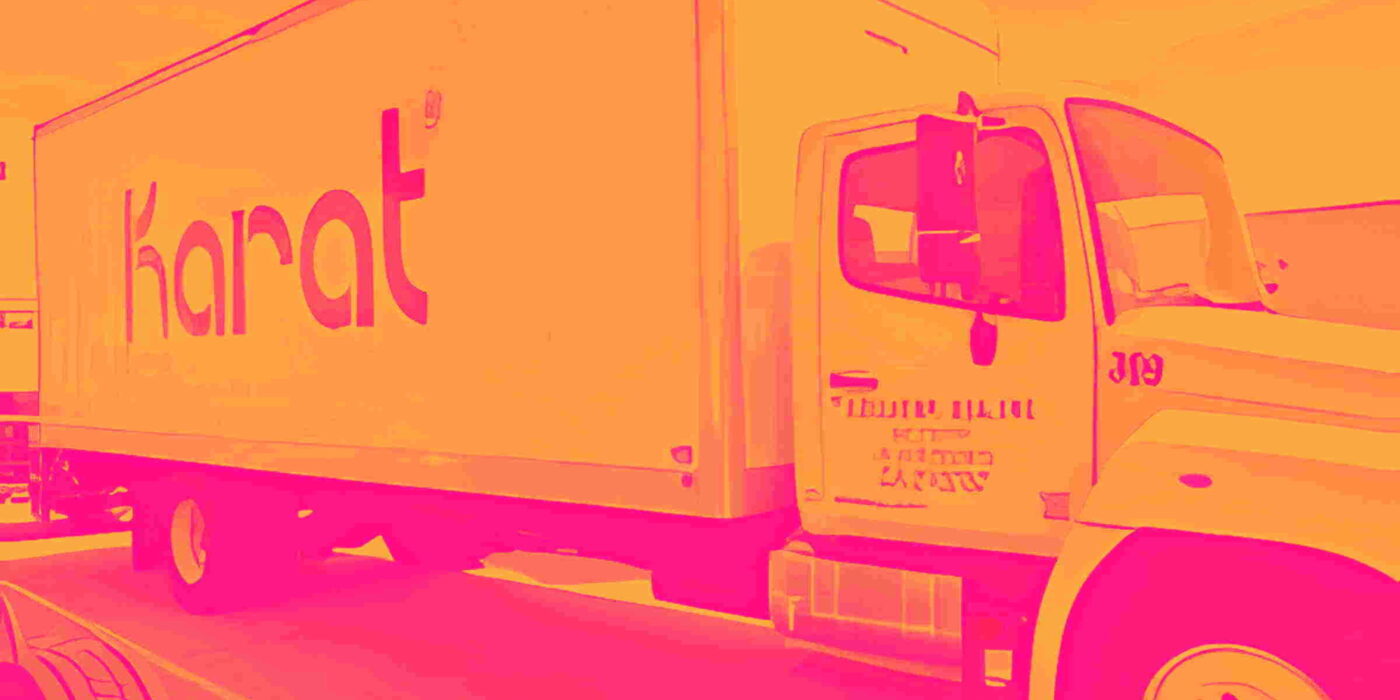
Foodservice packaging supplier Karat Packaging (NASDAQ: KRT) met Wall Street’s revenue expectations in Q3 CY2024, with sales up 6.9% year on year to $112.8 million. Its non-GAAP profit of $0.47 per share was 4.1% below analysts’ consensus estimates.
Is now the time to buy Karat Packaging? Find out by accessing our full research report, it’s free.
Karat Packaging (KRT) Q3 CY2024 Highlights:
- Revenue: $112.8 million vs analyst estimates of $112.9 million (in line)
- Adjusted EPS: $0.47 vs analyst expectations of $0.49 (4.1% miss)
- EBITDA: $14.72 million vs analyst estimates of $16 million (8% miss)
- Gross Margin (GAAP): 38.6%, up from 36.9% in the same quarter last year
- Operating Margin: 10%, in line with the same quarter last year
- EBITDA Margin: 13%, down from 14.4% in the same quarter last year
- Market Capitalization: $593.4 million
“Karat performed well in the third quarter, with net sales up nearly 7 percent and volume up approximately 10 percent, despite some pricing pressure,” said Alan Yu, Chief Executive Officer.
Company Overview
Founded as Lollicup, Karat Packaging (NASDAQ: KRT) distributes and manufactures environmentally-friendly disposable foodservice packaging solutions.
Specialty Equipment Distributors
Historically, specialty equipment distributors have boasted deep selection and expertise in sometimes narrow areas like single-use packaging or unique lighting equipment. Additionally, the industry has evolved to include more automated industrial equipment and machinery over the last decade, driving efficiencies and enabling valuable data collection. Specialty equipment distributors whose offerings keep up with these trends can take share in a still-fragmented market, but like the broader industrials sector, this space is at the whim of economic cycles that impact the capital spending and manufacturing propelling industry volumes.
Sales Growth
Examining a company’s long-term performance can provide clues about its business quality. Any business can put up a good quarter or two, but the best consistently grow over the long haul. Luckily, Karat Packaging’s sales grew at an exceptional 14.2% compounded annual growth rate over the last five years. This is encouraging because it shows Karat Packaging’s offerings resonate with customers, a helpful starting point.
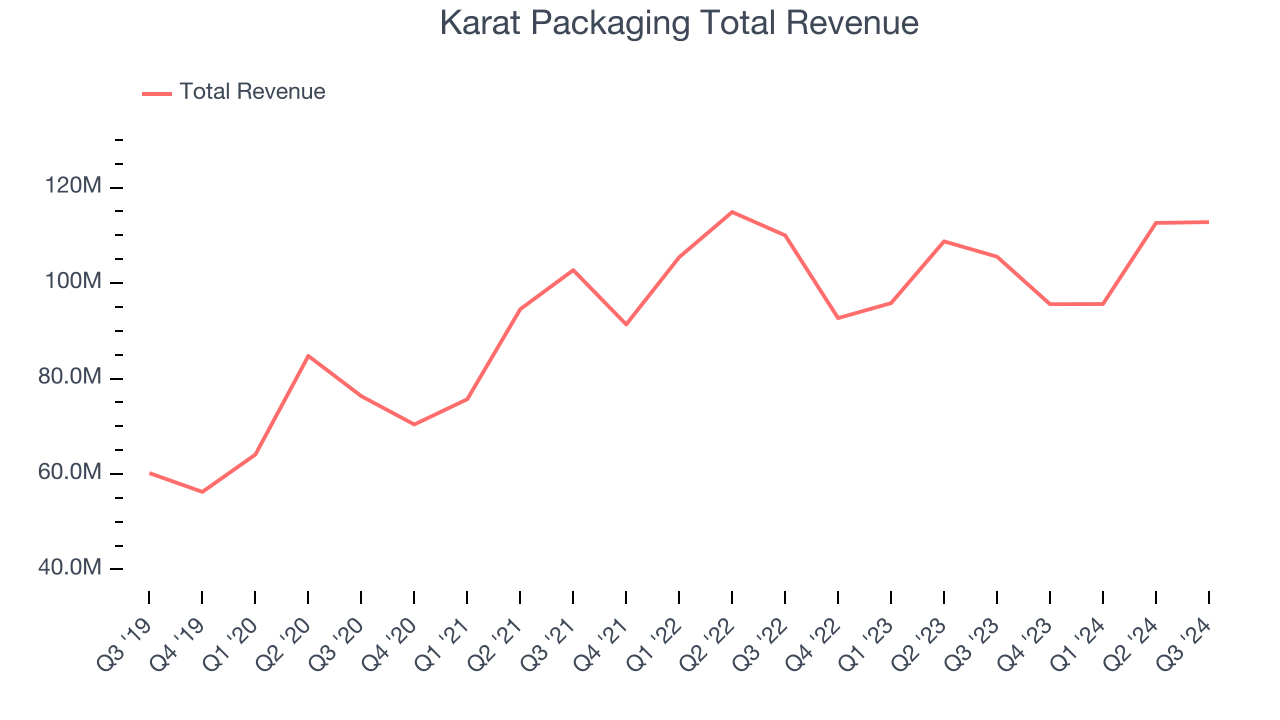
We at StockStory place the most emphasis on long-term growth, but within industrials, a half-decade historical view may miss cycles, industry trends, or a company capitalizing on catalysts such as a new contract win or a successful product line. Karat Packaging’s recent history shows its demand slowed significantly as its revenue was flat over the last two years. 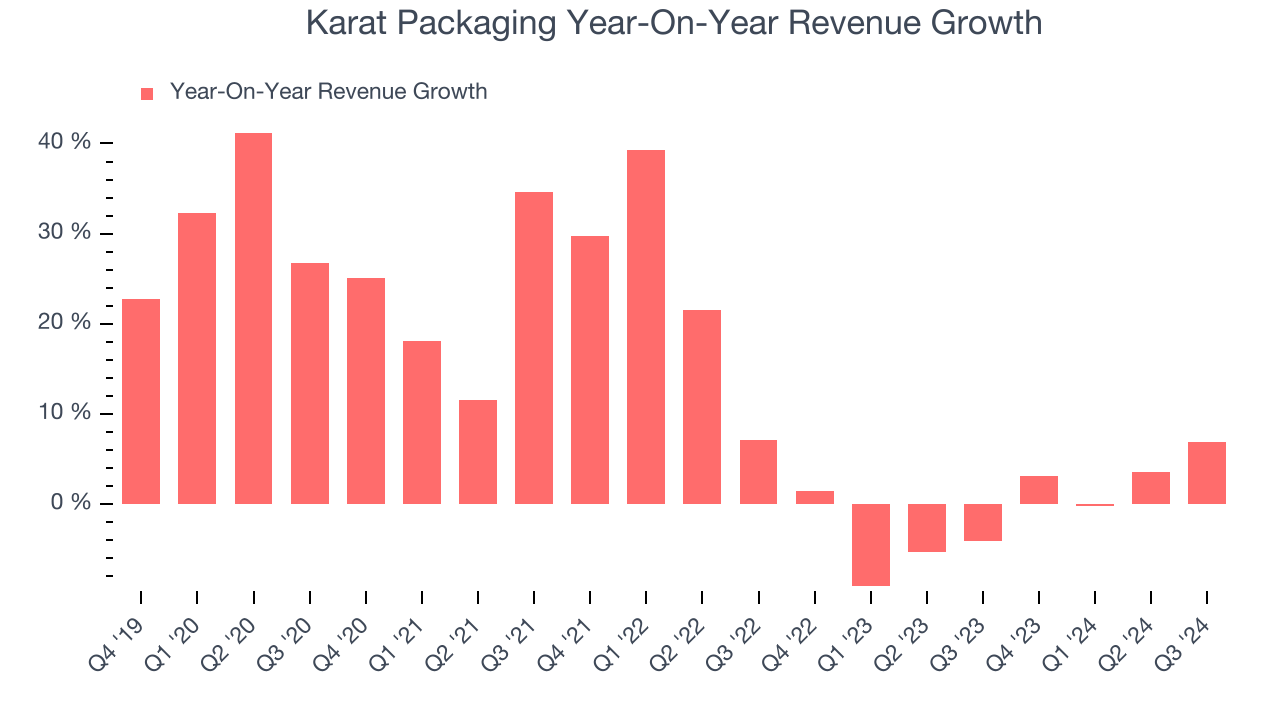
This quarter, Karat Packaging grew its revenue by 6.9% year on year, and its $112.8 million of revenue was in line with Wall Street’s estimates.
Looking ahead, sell-side analysts expect revenue to grow 6.4% over the next 12 months, an improvement versus the last two years. While this projection shows the market thinks its newer products and services will fuel better performance, it is still below average for the sector. At least the company is tracking well in other measures of financial health.
Here at StockStory, we certainly understand the potential of thematic investing. Diverse winners from Microsoft (MSFT) to Alphabet (GOOG), Coca-Cola (KO) to Monster Beverage (MNST) could all have been identified as promising growth stories with a megatrend driving the growth. So, in that spirit, we’ve identified a relatively under-the-radar profitable growth stock benefitting from the rise of AI, available to you FREE via this link.
Operating Margin
Karat Packaging has done a decent job managing its cost base over the last five years. The company has produced an average operating margin of 8.3%, higher than the broader industrials sector.
Analyzing the trend in its profitability, Karat Packaging’s annual operating margin decreased by 1 percentage points over the last five years. Even though its margin is still high, shareholders will want to see Karat Packaging become more profitable in the future.
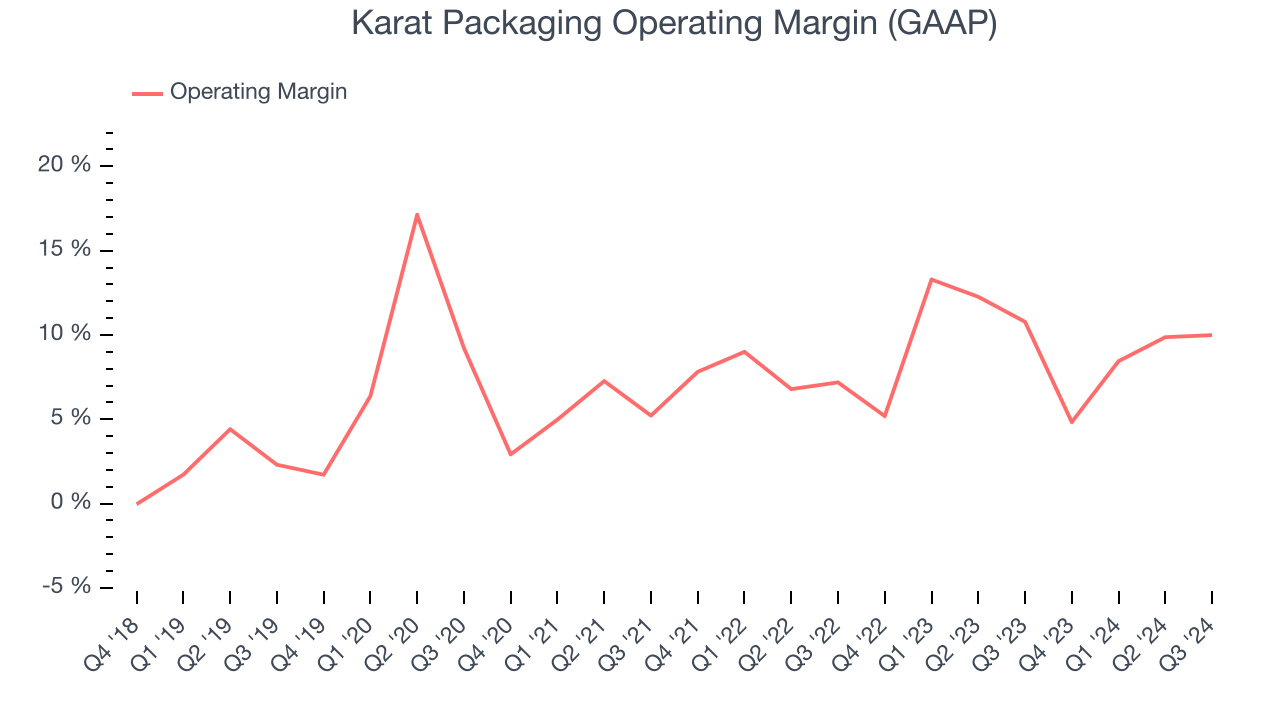
This quarter, Karat Packaging generated an operating profit margin of 10%, in line with the same quarter last year. This indicates the company’s cost structure has recently been stable.
Earnings Per Share
We track the change in earnings per share (EPS) for the same reason as long-term revenue growth. Compared to revenue, however, EPS highlights whether a company’s growth was profitable.
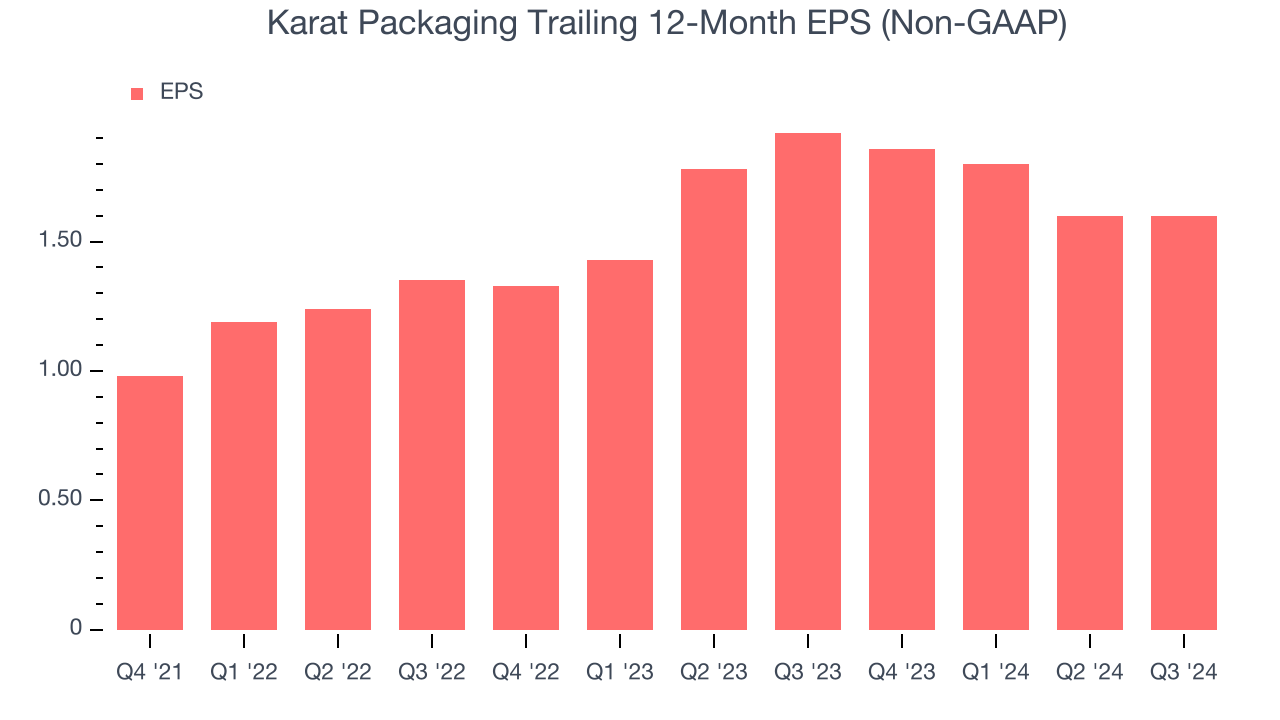
Karat Packaging’s EPS grew at a decent 8.9% compounded annual growth rate over the last two years, higher than its flat revenue. This tells us management responded to softer demand by adapting its cost structure.
We can take a deeper look into Karat Packaging’s earnings quality to better understand the drivers of its performance. While we mentioned earlier that Karat Packaging’s operating margin was flat this quarter, a two-year view shows its margin has expanded by 2.8 percentage points. This was the most relevant factor (aside from the revenue impact) behind its higher earnings; taxes and interest expenses can also affect EPS but don’t tell us as much about a company’s fundamentals.
In Q3, Karat Packaging reported EPS at $0.47, in line with the same quarter last year. This print missed analysts’ estimates, but we care more about long-term EPS growth than short-term movements. We also like to analyze expected EPS growth based on Wall Street analysts’ consensus projections, but there is insufficient data.
Key Takeaways from Karat Packaging’s Q3 Results
We struggled to find many strong positives in these results as its EBITDA and EPS fell short of Wall Street’s estimates. Overall, this was a softer quarter. The stock traded down 1.2% to $29 immediately following the results.
Karat Packaging didn’t show it’s best hand this quarter, but does that create an opportunity to buy the stock right now? We think that the latest quarter is only one piece of the longer-term business quality puzzle. Quality, when combined with valuation, can help determine if the stock is a buy. We cover that in our actionable full research report which you can read here, it’s free.






